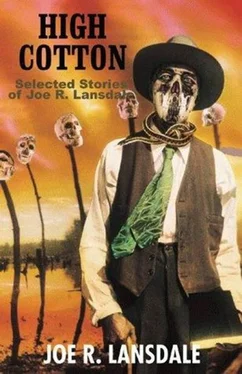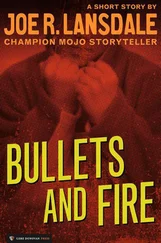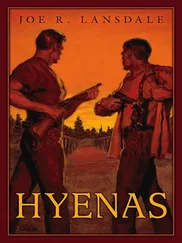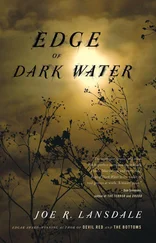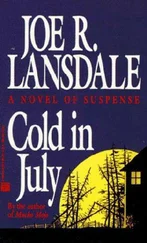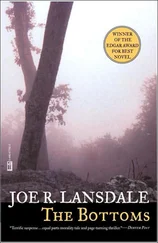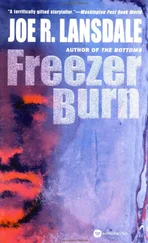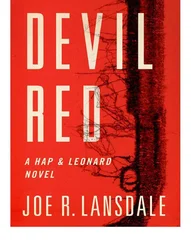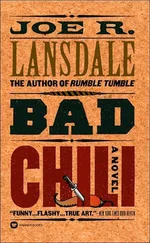I consider myself enough of a pro that I can do a good, competent story any day of the week. I prefer, of course, to always write a masterpiece, but, unfortunately, you can't make that choice. You can only choose to write as well as you can. Even if you have to wade through cotton.
When I was doing this one, I felt I was doing a solid job, and nothing more, but I gave it everything I had. When I reread it in print I liked it much better. It may not be a masterpiece, but it's been picked up for a best of the year volume, optioned twice for film, and I meet people all the time who think it's one of my best. Go figure.
I guess the motto of this story is simple. Listen to your gut. Write the best you can every time out. You never know what you'll come up with. And even if it's just a good professional story, that's nothing to be ashamed of.
WHEN ELLEN CAME TO THE MOONLIT mountain curve, her thoughts, which had been adrift with her problems, grounded, and she was suddenly aware that she was driving much too fast. The sign said CURVE: 30 MPH, and she was doing fifty.
She knew too that slamming on the brakes was the wrong move, so she optioned to keep her speed and fight the curve and make it, and she thought she could.
The moonlight was strong, so visibility was high, and she knew her Chevy was in good shape, easy to handle, and she was a good driver.
But as she negotiated the curve a blue Buick seemed to grow out of the ground in front of her. It was parked on the shoulder of the road, at the peak of the curve, its nose sticking out a foot too far, its rear end against the moon-wet, silver railing that separated the curve from a mountainous plunge.
Had she been going an appropriate speed, missing the Buick wouldn't have been a problem, but at her speed she was swinging too far right, directly in line with it, and was forced, after all, to use her brakes. When she did, the back wheels slid and the brakes groaned and the front of the Chevy hit the Buick, and there was a sound like an explosion and then for a dizzy instant she felt as if she were in the tumblers of a dryer.
Through the windshield came: Moonlight. Blackness. Moonlight.
One high bounce and a tight roll, and the Chevy came to rest upright with the engine dead, the right side flush against the railing. Another inch of jump or greater impact against the rail, and the Chevy would have gone over.
Ellen felt a sharp pain in her leg and reached down to discover that during the tumble she had banged it against something, probably the gear shift, and had ripped her stocking and her flesh. Blood was trickling into her shoe. Probing her leg cautiously with the tips of her fingers, she determined the wound wasn't bad and that all other body parts were operative.
She unfastened her seat belt, and as a matter of habit, located her purse and slipped its strap over her shoulder. She got out of the Chevy feeling wobbly, eased around front of it and saw the hood and bumper and roof were crumpled. A wisp of radiator steam hissed from beneath the wadded hood, rose into the moonlight and dissolved.
She turned her attentions to the Buick. Its tail end was now turned to her, and as she edged alongside it, she saw the front left side had been badly damaged. Fearful of what she might see, she glanced inside.
The moonlight shone through the rear windshield bright as a spotlight and revealed no one, but the back seat was slick with something dark and wet and there was plenty of it. A foul scent seeped out of a partially rolled down back window. It was a hot coppery smell that gnawed at her nostrils and ached her stomach.
God, someone had been hurt. Maybe thrown free of the car, or perhaps they had gotten out and crawled off. But when? She and the Chevy had been airborne for only a moment, and she had gotten out of the vehicle instants after it ceased to roll. Surely she would have seen someone get out of the Buick, and if they had been thrown free by the collision, wouldn't at least one of the Buick's doors be open? If it had whipped back and closed, it seemed unlikely that it would be locked, and all the doors of the Buick were locked, and all the glass was intact, and only on her side was it rolled down, and only a crack. Enough for the smell of the blood to escape, not enough for a person to slip through unless they were thin and flexible as a feather.
On the other side of the Buick, on the ground, between the back door and the railing, there were drag marks and a thick swath of blood, and another swath on the top of the railing; it glowed there in the moonlight as if it were molasses laced with radioactivity.
Ellen moved cautiously to the railing and peered over.
No one lay mangled and bleeding and oozing their guts. The ground was not as precarious there as she expected it. It was pebbly and sloped out gradually and there was a trail going down it. The trail twisted slightly and as it deepened the foliage grew denser on either side of it. Finally it curlicued its way into the dark thicket of a forest below, and from the forest, hot on the wind, came the strong turpentine tang of pines and something less fresh and not as easily identifiable.
Now she saw someone moving down there, floating up from the forest like an apparition; a white face split by silver — braces, perhaps. She could tell from the way this someone moved that it was a man. She watched as he climbed the trail and came within examination range. He seemed to be surveying her as carefully as she was surveying him.
Could this be the driver of the Buick?
As he came nearer Ellen discovered she could not identify the expression he wore. It was neither joy or anger or fear or exhaustion or pain. It was somehow all and none of these.
When he was ten feet away, still looking up, that same odd expression on his face, she could hear him breathing. He was breathing with exertion, but not to the extent she thought him tired or injured. It was the sound of someone who had been about busy work.
She yelled down, "Are you injured?"
He turned his head quizzically, like a dog trying to make sense of a command, and it occurred to Ellen that he might be knocked about in the head enough to be disoriented.
"I'm the one who ran into your car," she said. "Are you all right?"
His expression changed then, and it was most certainly identifiable this time. He was surprised and angry. He came up the trail quickly, took hold of the top railing, his fingers going into the blood there, and vaulted over and onto the gravel.
Ellen stepped back out of his way and watched him from a distance. The guy made her nervous. Even close up, he looked like some kind of spook.
He eyed her briefly, glanced at the Chevy, turned to look at the Buick.
"It was my fault," Ellen said.
He didn't reply, but returned his attention to her and continued to cock his head in that curious dog sort of way.
Ellen noticed that one of his shirt sleeves was stained with blood, and that there was blood on the knees of his pants, but he didn't act as if he were hurt in any way. He reached into his pants pocket and pulled out something and made a move with his wrist. Out flicked a lock-blade knife. The thin edge of it sucked up the moonlight and spat it out in a silver spray that fanned wide when he held it before him and jiggled it like a man working a stubborn key into a lock. He advanced toward her, and as he came, his lips split and pulled back at the corners, exposing, not braces, but metal-capped teeth that matched the sparkle of his blade.
It occurred to her that she could bolt for the Chevy, but in the same mental flash of lightning, it occurred to her she wouldn't make it.
Ellen threw herself over the railing, and as she leapt, she saw out of the corner of her eye, the knife slashing the place she had occupied, catching moonbeams and throwing them away. Then the blade was out of her view and she hit on her stomach and skidded onto the narrow trail, slid downward, feet first. The gravel and roots tore at the front of her dress and ripped through her nylons and gouged her flesh. She cried out in pain and her sliding gained speed. Lifting her chin, she saw that the man was climbing over the railing and coming after her at a stumbling run, the knife held before him like a wand.
Читать дальше
